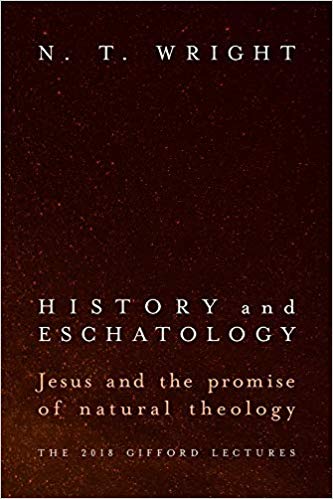BEN: In regard to history itself, you talk a lot about critical realism as opposed to either radical subjectivity or assumed positivistic objectivity when it comes to the human analysis of data. How does critical realism differ from, say Derrida or reader-response theories of Fish and others? Is there really nothing but texts, and is it really true that meaning is entirely in the eye of the beholder, or merely created in the interaction between the ‘reader’ and his source material?
TOM: ‘Critical realism’ has meant different things to different people but I use it, borrowing from the late great Ben F Meyer in his The Aims of Jesus and various other books and essays, to mean, broadly, that of course we must be aware of an author’s point of view, and also of our own point of view, and make full allowance for both – but that, when we do that, we can still make positive judgments about the historicity of what the text is describing (if it is indeed intending to describe historical events, which e.g. Luke makes blindingly obvious). So the ‘critical’ bit allows for Derrida, Fish and others, but the ‘realism’ bit – which is not simply a ‘chastened positivism’ as some have suggested! – insists that historical knowledge, gleaned from sources that have been tested and critically assessed, is none the less real knowledge of the past, not fantasy. Thus e.g. we know that Jerusalem was destroyed in AD 70; we know that Jesus of Nazareth died by crucifixion; that Saul of Tarsus was transformed into Paul, the wandering and letter-writing apostle . . . and so on . . . and we can build out from there.
BEN: Another key phrase that occurs again and again in your new book is the epistemology of love, by which I take it you mean that one must: 1) read ancient texts with sympathy or empathy allowing the speaker to have his own viewpoint and have his own say; 2) care about what he or she says, 3) be open to accepting his or her perspective on things. This would be as opposed to approaching ancient texts with skepticism or modern prejudices and reading those texts anachronistically, assuming the superiority of modern thought. Can you say more, flesh out this idea of an epistemology of love? Does one have to be a believer who loves the Bible to really understand its meaning?
TOM: The epistemology of love (on which I’m doing the Erasmus Lecture in New York in less than three weeks from now!) is, first, a way of transcending the sterile objective/subjective divide. It insists that knowledge arises from and belongs with an appropriate engagement with the subject-matter, whether it be a planet, a plant, a peacock, a mathematical theorem, a grandchild, a historical proposal . . . engagement means we recognize that we are not, and cannot be, entirely hands-off (cp. Heisenberg’s ‘uncertainty principle’, where the observer alters the thing observed); we come to all our questions and experiments with our agendas, and we take appropriate delight in discerning the otherness of the thing or person observed. Not to take delight in that otherness is not love – it is greed or lust, using the other thing or person for our own purposes.
Out beyond that starting-point, I see love as the appropriate mode of all knowledge of the world and indeed of God, because creation is a gift of God’s love and love (both delight and curiosity) is the appropriate response. But this cannot lead straight to a ‘natural theology’ because evil, sin, sorrow and death stand in the way. But the resurrection of Jesus is the fresh public announcement of the divine love, with the new creation reaffirming the goodness of the old, so that as Wittgenstein said, ‘It is love that believes the resurrection’. And this does not collapse into mere subjectivity (‘You ask me how I know he lives? He lives within my heart’ – to which an appropriate if cynical answer is, ‘Very nice for you but he doesn’t live in mine’), because this love is precisely the affirmation of that which is other than myself . . .













